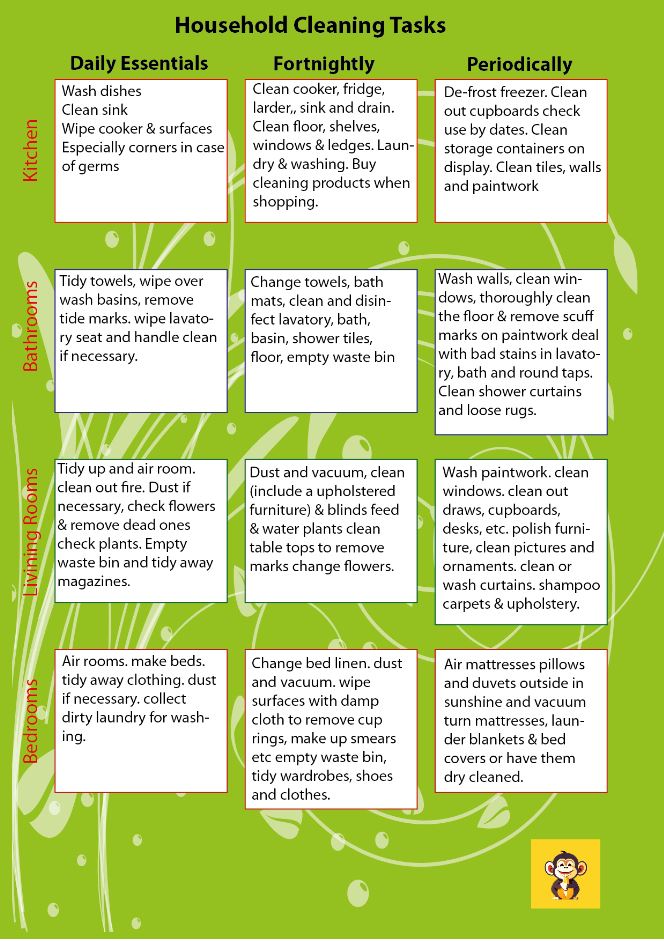For most people, their home is a refuge from the pressures of everyday life, a place to relax, entertain, and generally feel secure. So it makes sense to keep it looking as clean and as appealing as possible, this not only means it is more hygienic but also a more pleasant place to spend your time.
However, there has to be a balance between maintaining a standard of cleanliness that drives you and the family into a frenzy and being so daunted by the task of cleaning that you never actually begin. Some kind of routine is important, but a flexible one.
Decide which jobs have to be done daily, such as washing up, bed making, and some general tidying.
It can be surprising how much improved a room looks if the bins are emptied, old magazines removed, and the cushions plumped up.

It is up to you to decide when more tiring tasks, such as vacuuming, cleaning, dusting, washing, and ironing have to be tackled,
but remember, they will not disappear merely accumulate so reasonably regular attention to them is only sensible.
There are also periodic tasks, such as window cleaning, turning out draws, and defrosting the freezer…..
Every individual household will cope with these in its own way, but it is important that some kind of system is evolved,
preferably with every member of the household taking a turn so that the home really is the place where everyone can relax and feel secure.
A ROUTINE IS IMPORTANT
Making a routine is important because it will avoid all sorts of tasks backing up so that you then have a mammoth job to clear,
which is not appealing.
Try making a list of jobs that you want to tackle it’s great when you can tick off each item as you do them but always remember
that that list is flexible so it can be altered or reorganized depending on your circumstances or unexpected events that happen.
You can even divide the list into sections that suit you for example daily tasks, regular tasks, and occasional or periodic tasks.
Many due to work, caring for children or loved ones haven’t got much time so it’s always wise to consider
labour-saving equipment to help make jobs quicker and easier Older children can be asked to help with
household tasks whilst younger ones are given more attention.
Money often determines what you can spend on labour-saving devices and home Improvements
but you do not always have to buy new there are many outlets that sell reconditioned and
second-hand tools with a short warranty.
We have drawn up a plan which will give you a broad outline of daily, regular, and periodic tasks to be done, obviously, it’s not conclusive but you may find a system that works for you.



